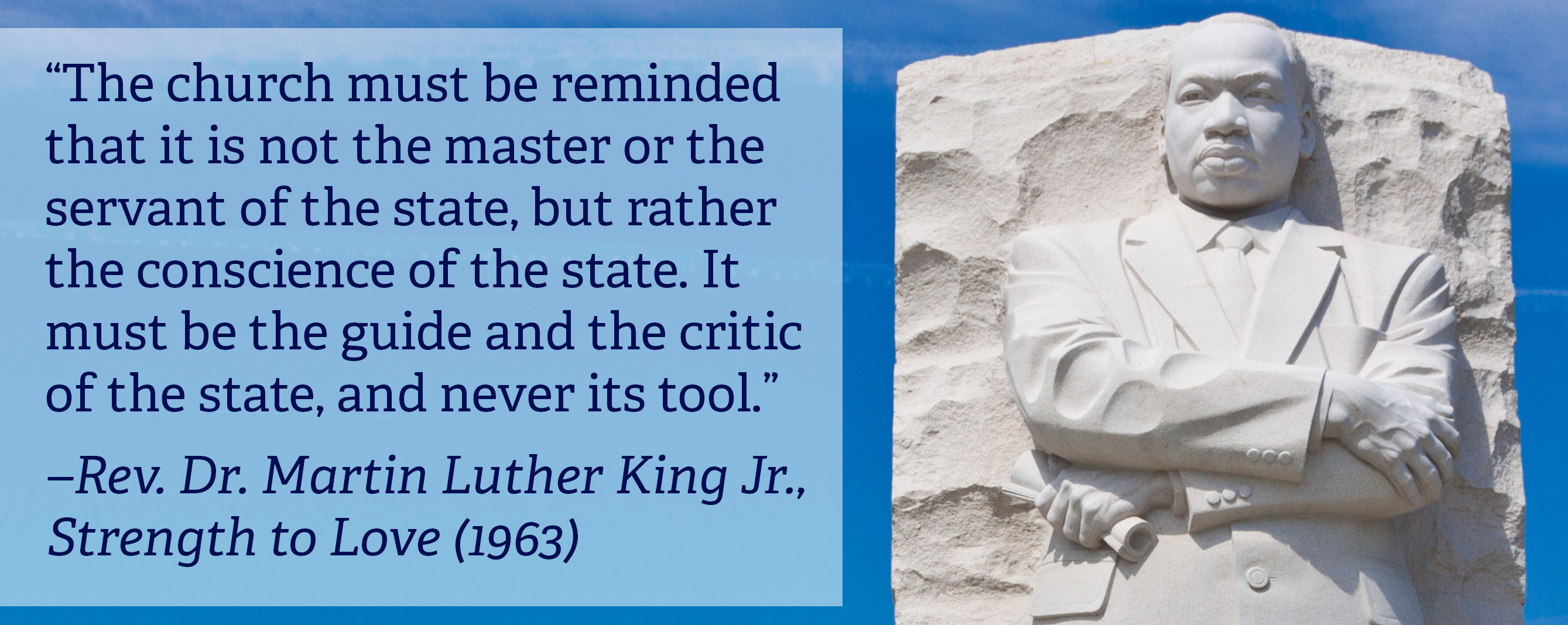 Written by Don Byrd
Written by Don Byrd
This year, the holiday celebrating Martin Luther King, Jr.’s birthday and Religious Freedom Day happen to fall on the same day – Monday, January 16. It seems especially fitting to honor them both in concert with one another.
Dr. King’s legacy is a beautiful tribute to, and example of, the power the church can harness when it embraces its prophetic voice. Without the foundation of religious freedom on which to proclaim that voice, such power might never materialize. At the same time, Dr. King recognized that his voice must remain distinct from the mechanisms of government to maintain that vitality. “The church,” he said, “must be the guide and the critic of the state, and never its tool.”
President Obama, in his MLK Day proclamation, sees in Dr. King’s activism the call to “live our values.” And in his proclamation announcing this year’s Religious Freedom Day 2017 (which marks the anniversary of the Virginia Statute for Religious Freedom), President Obama emphasized that America’s commitment to religious freedom not only protects our faith, it also strengthens our country by allowing such voices of conscience to be heard on the issues of the day. Here is an excerpt:
Religious freedom is a principle based not on shared ancestry, culture, ethnicity, or faith but on a shared commitment to liberty — and it lies at the very heart of who we are as Americans. As a Nation, our strength comes from our diversity, and we must be unified in our commitment to protecting the freedoms of conscience and religious belief and the freedom to live our lives according to them. Religious freedom safeguards religion, allowing us to flourish as one of the most religious countries on Earth, but it also strengthens our Nation as a whole. Brave men and women of faith have challenged our conscience and brought us closer to our founding ideals, from the abolition of slavery to the expansion of civil rights and workers’ rights. And throughout our history, faith communities have helped uphold these values by joining in efforts to help those in need — rallying in the face of tragedy and providing care or shelter in times of disaster.
That strength, the President goes on to remind us, emerges only when religion “is not an extension of the state.”
As we honor both MLK Day and Religious Freedom Day, we should reaffirm our commitment to both sides of the religious liberty coin, as Dr. King admonished. Religious liberty is robust when voices of faith are free to be heard on issues of the day and free of the entanglements of the state that can compromise its message and its vitality.




